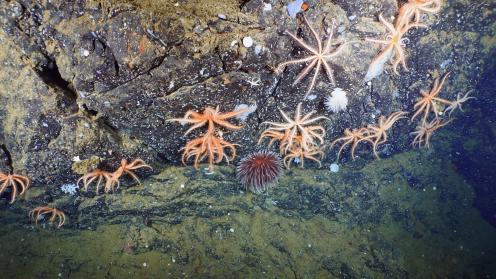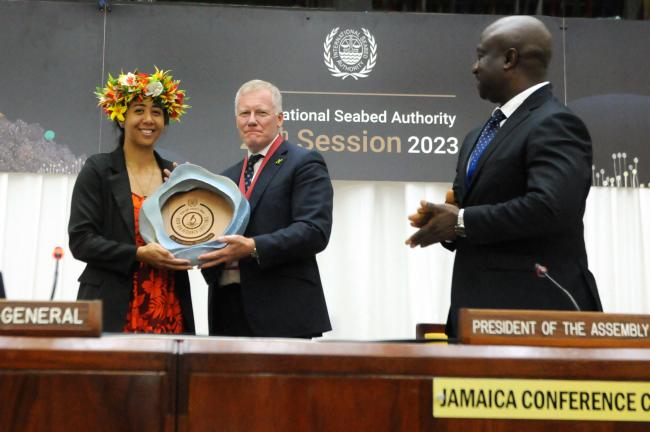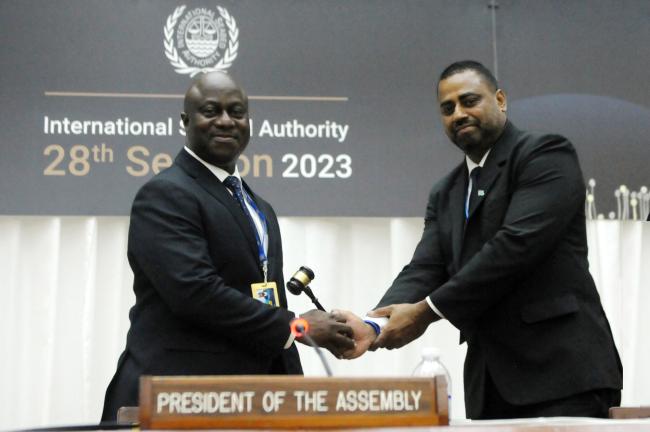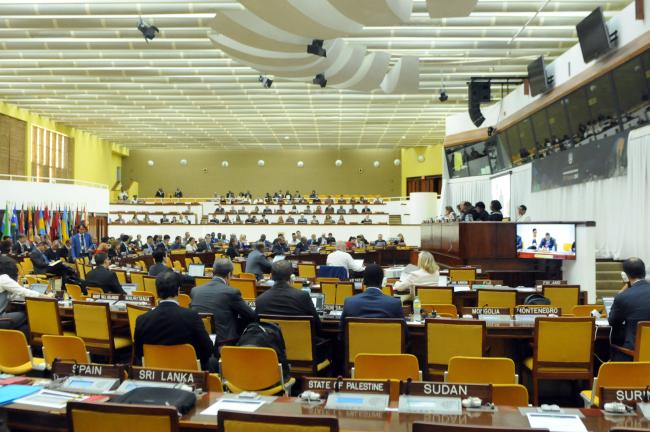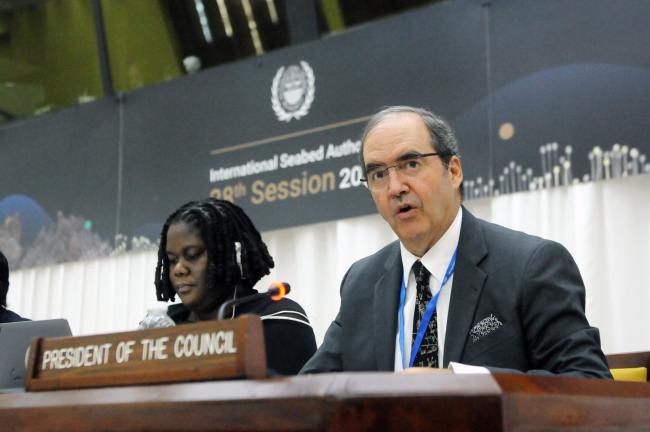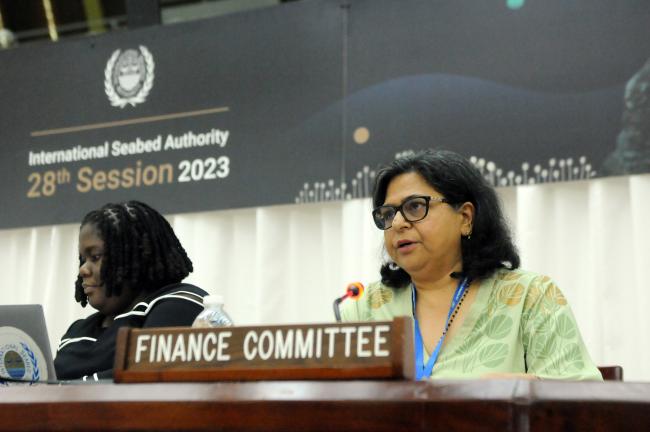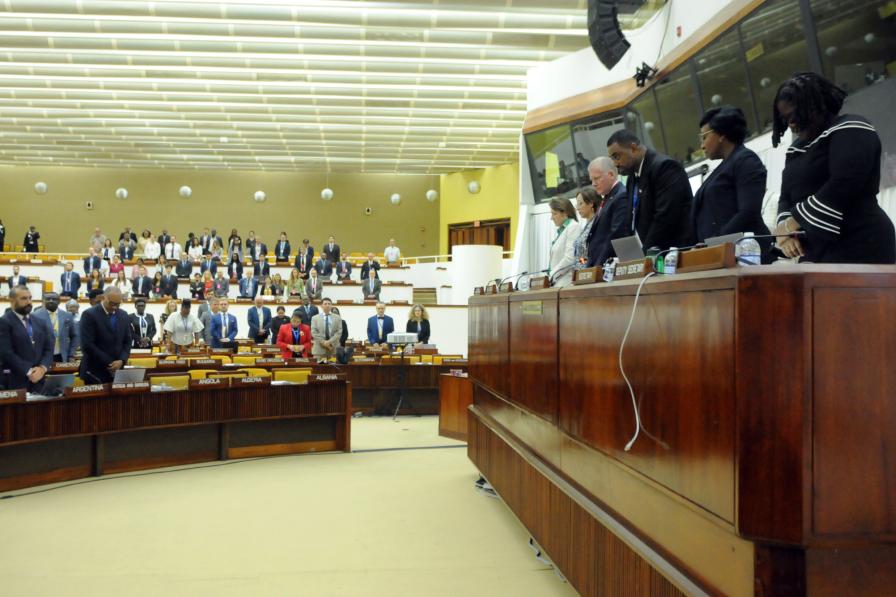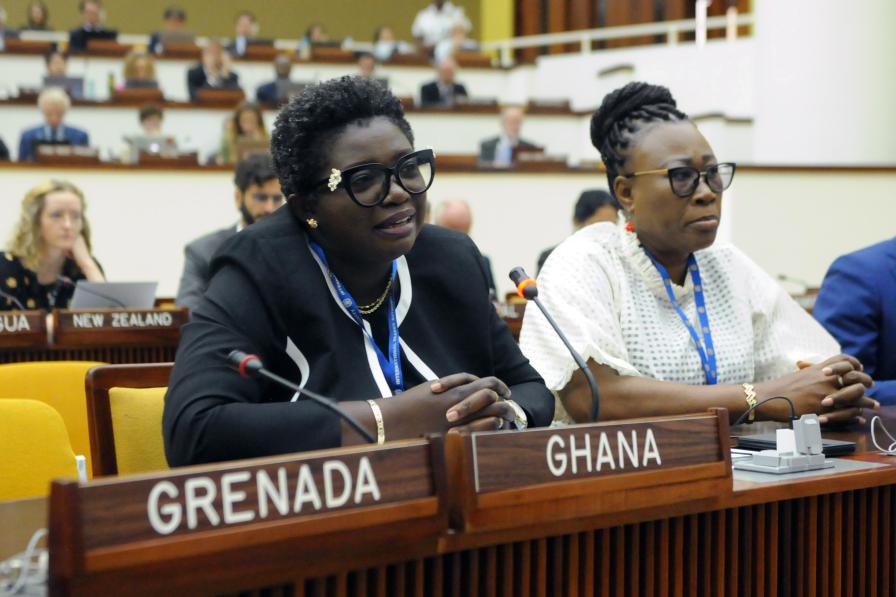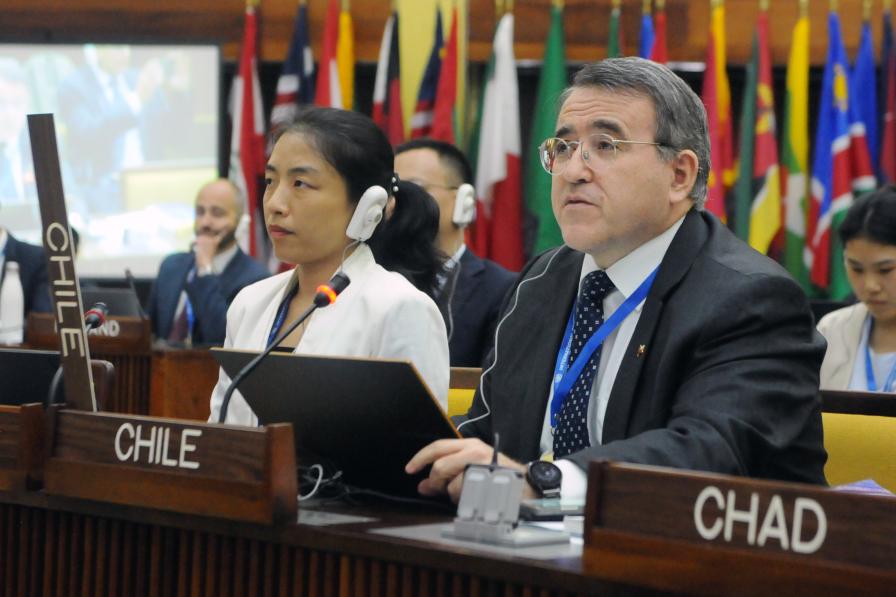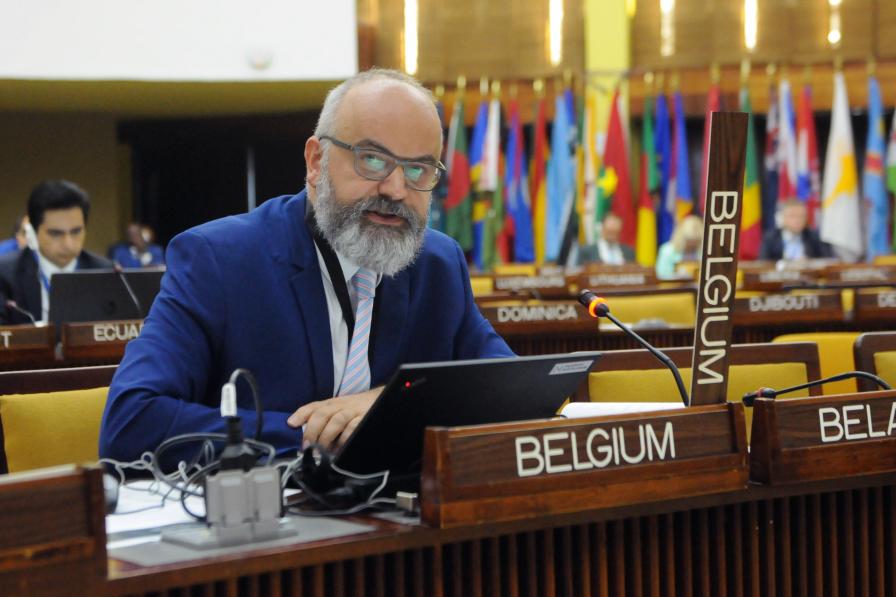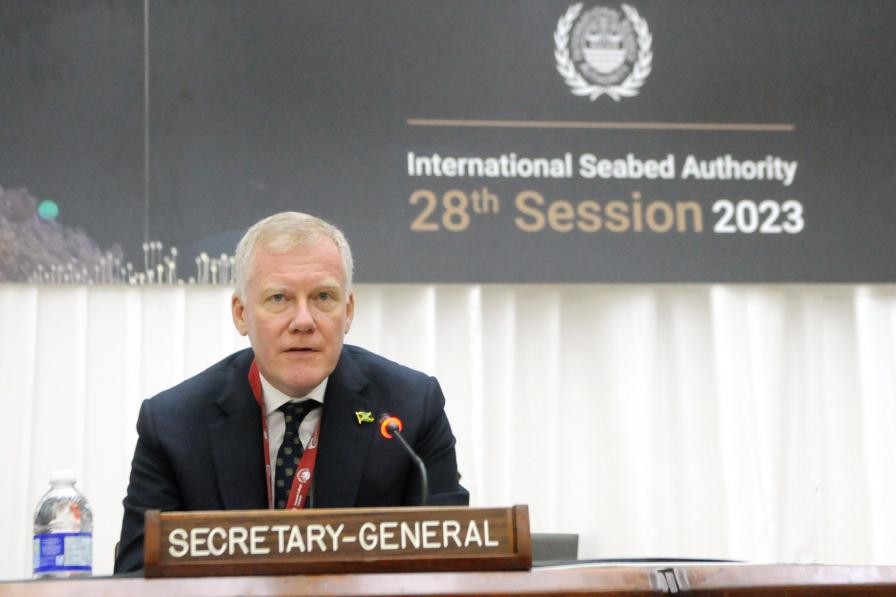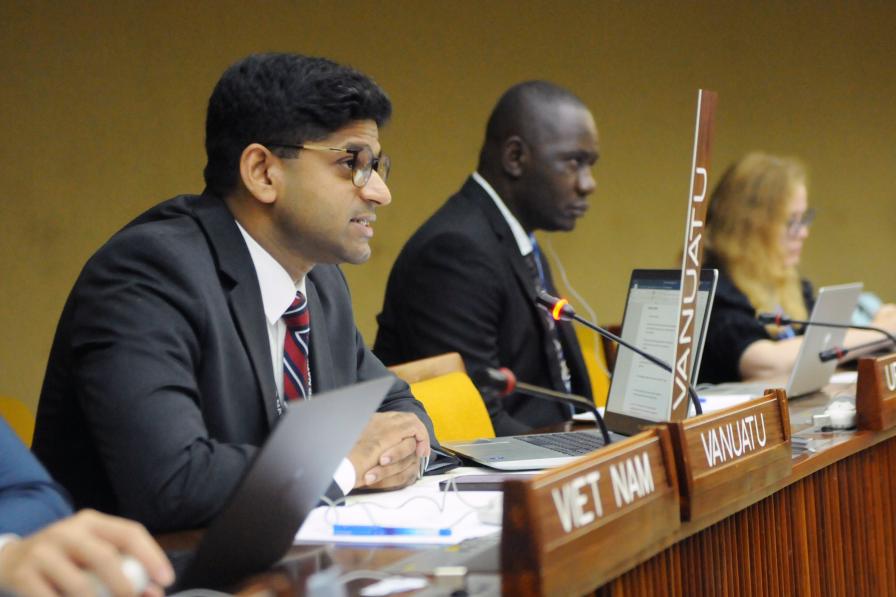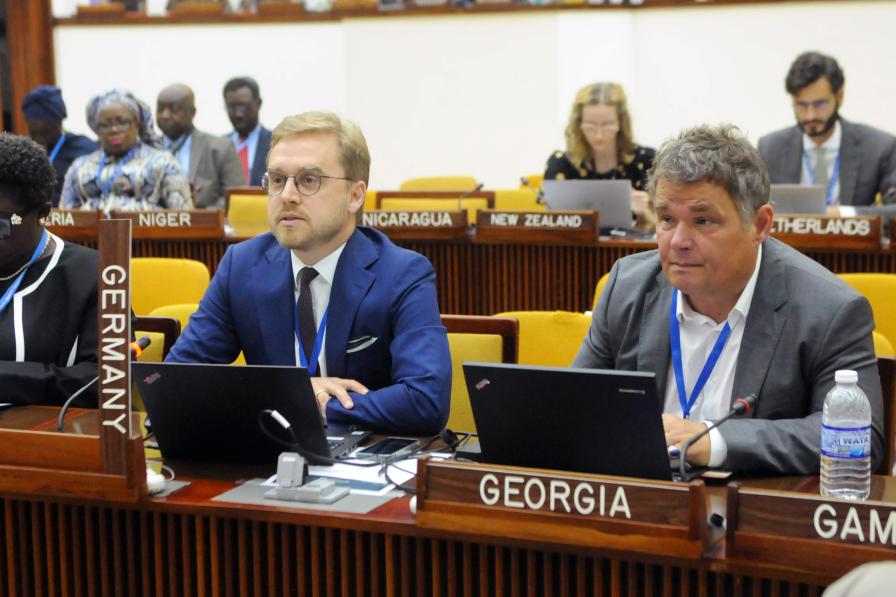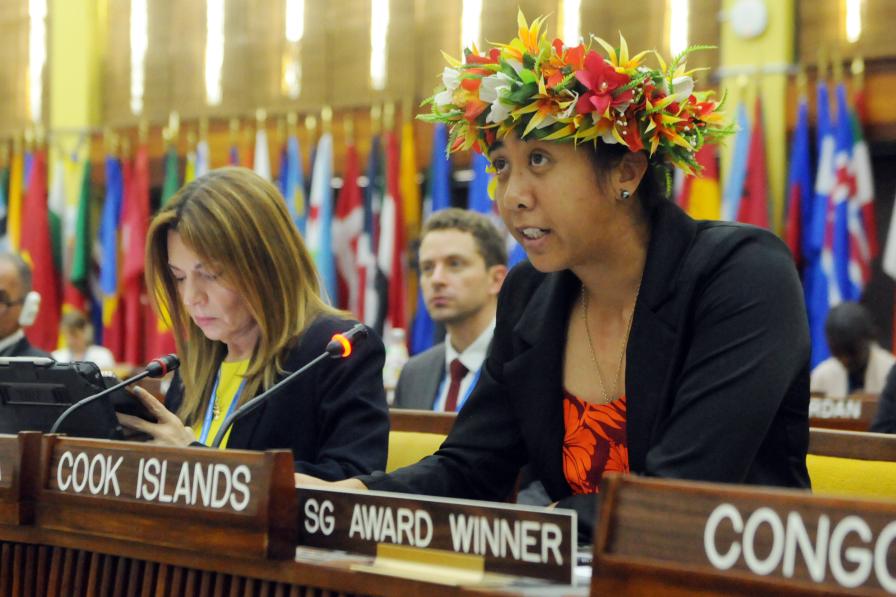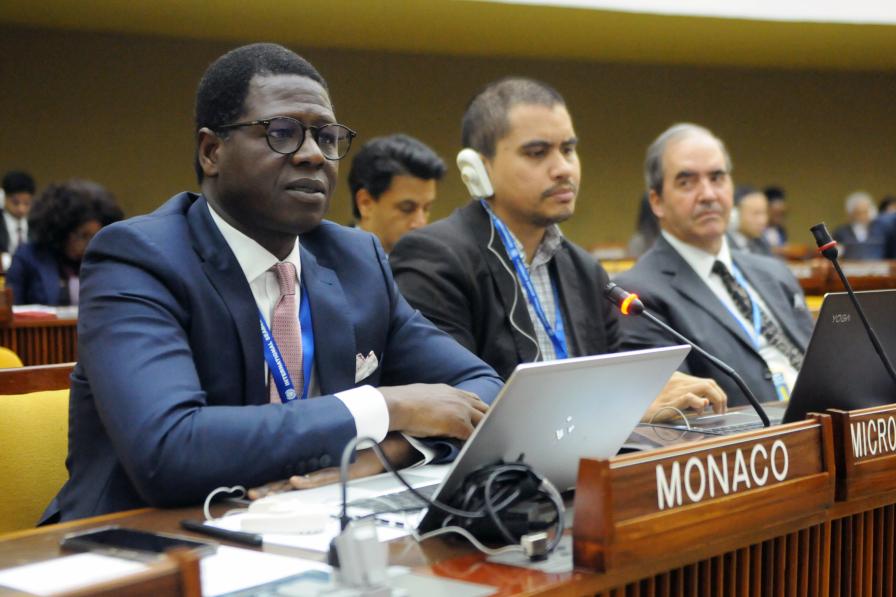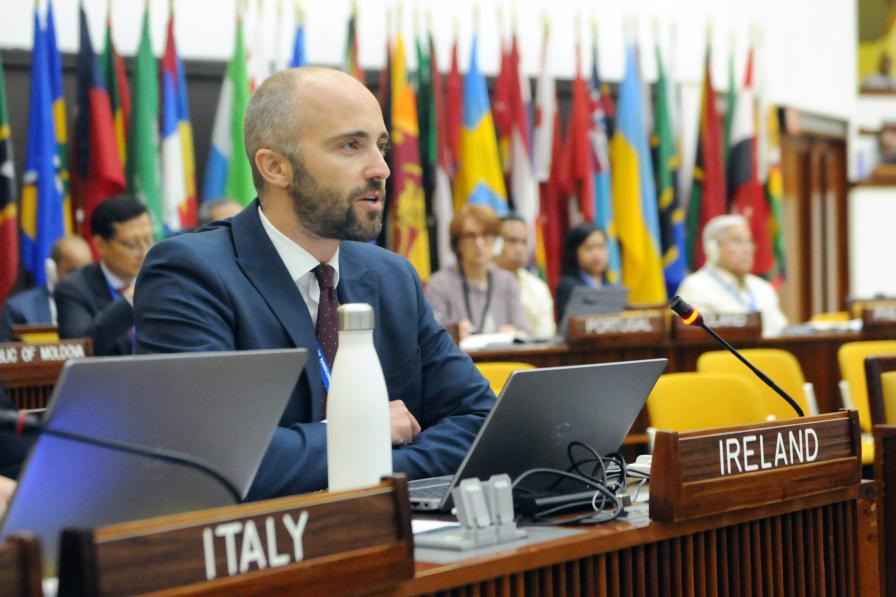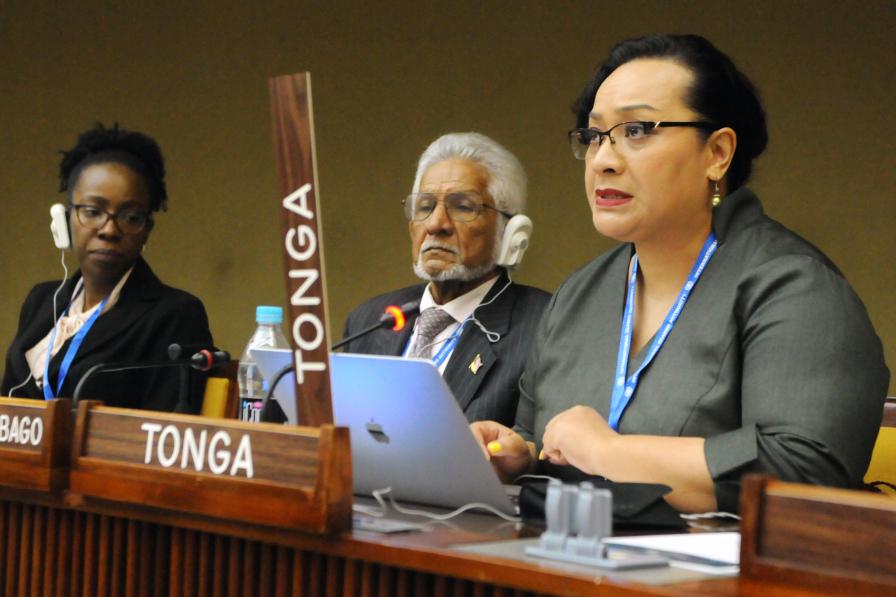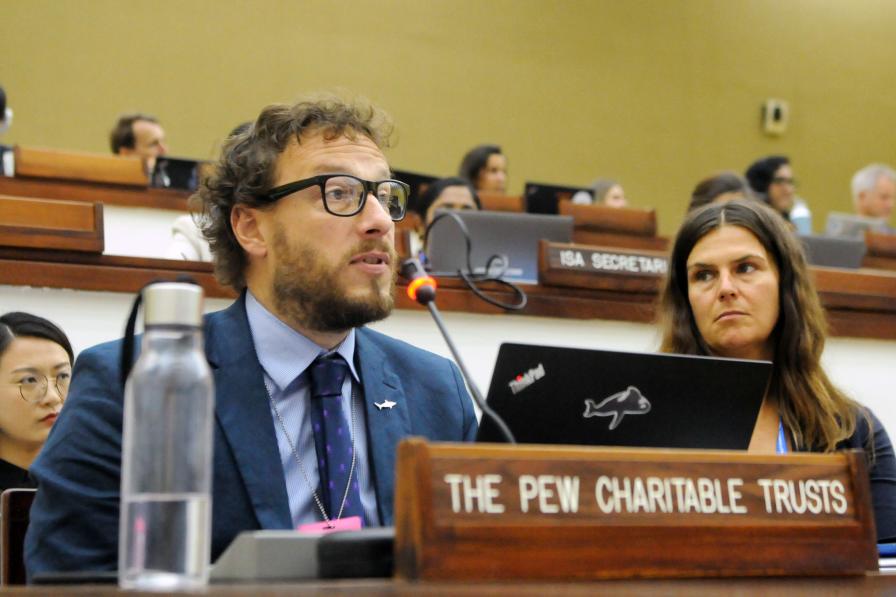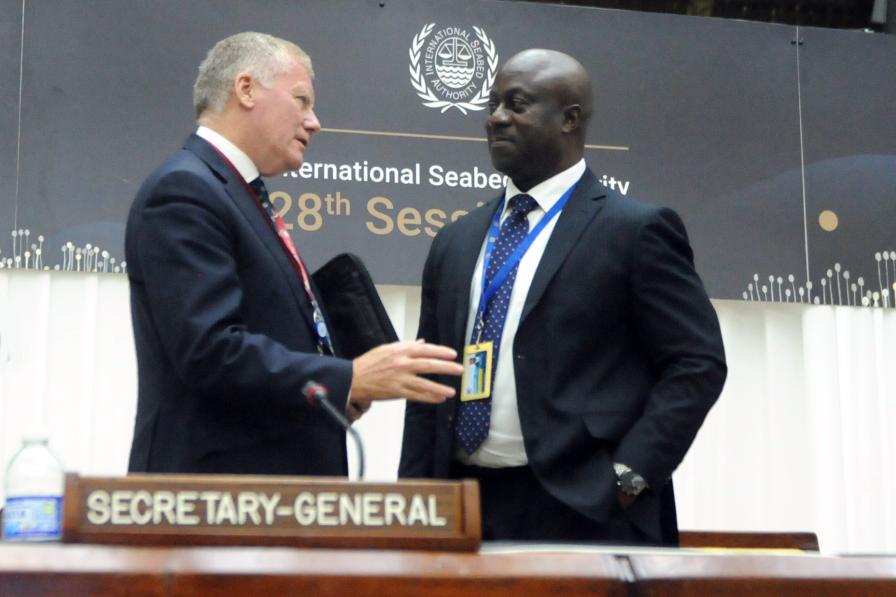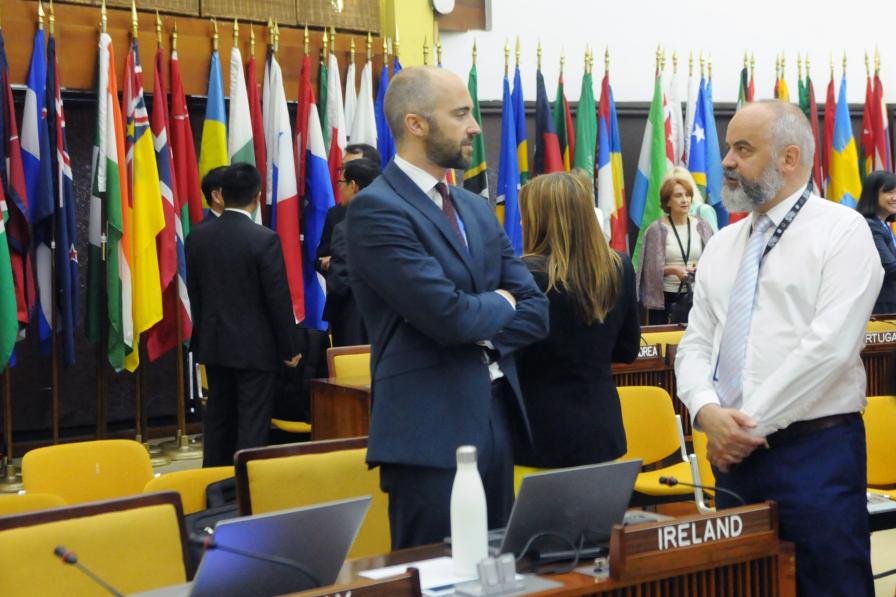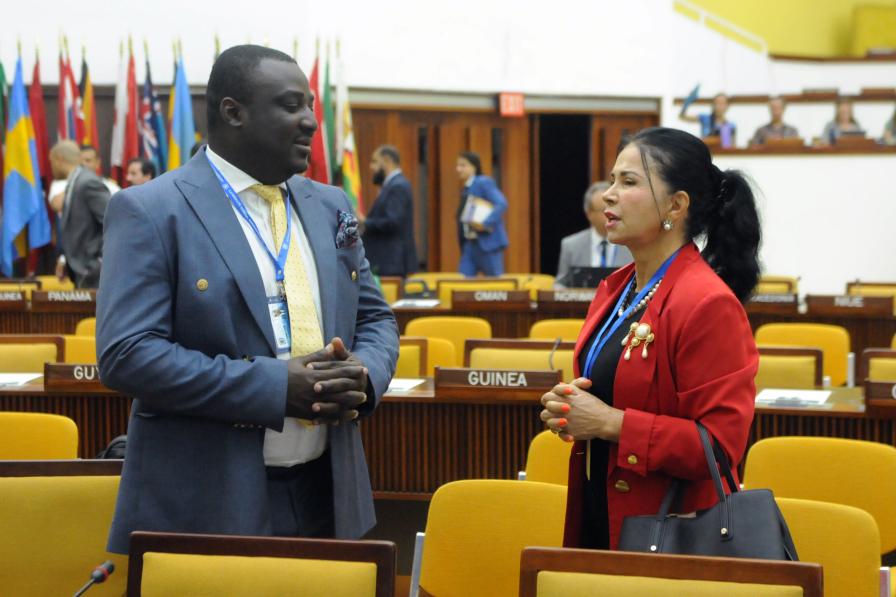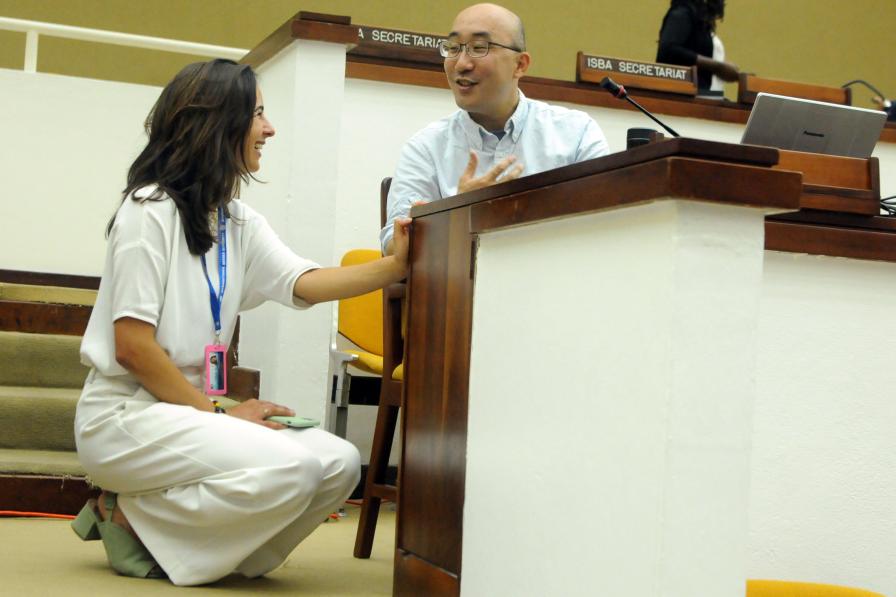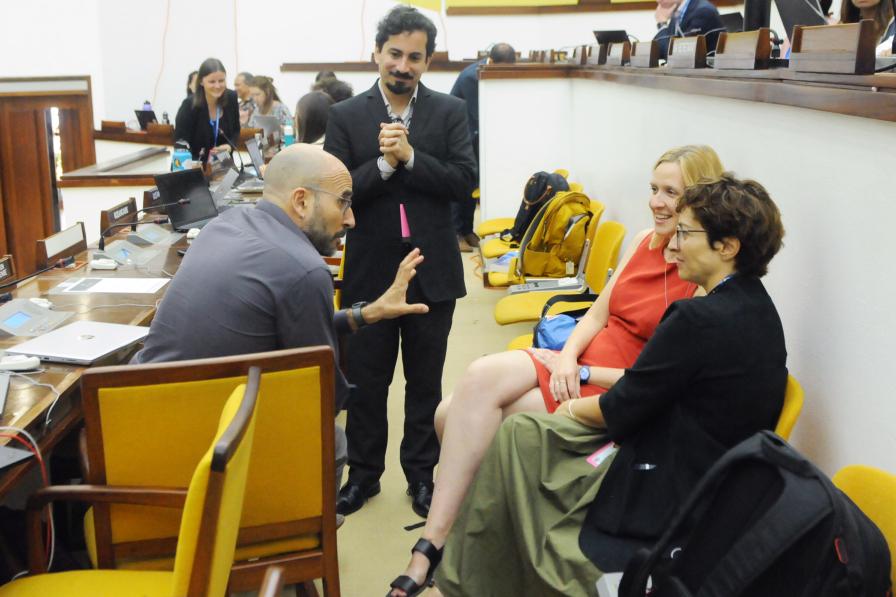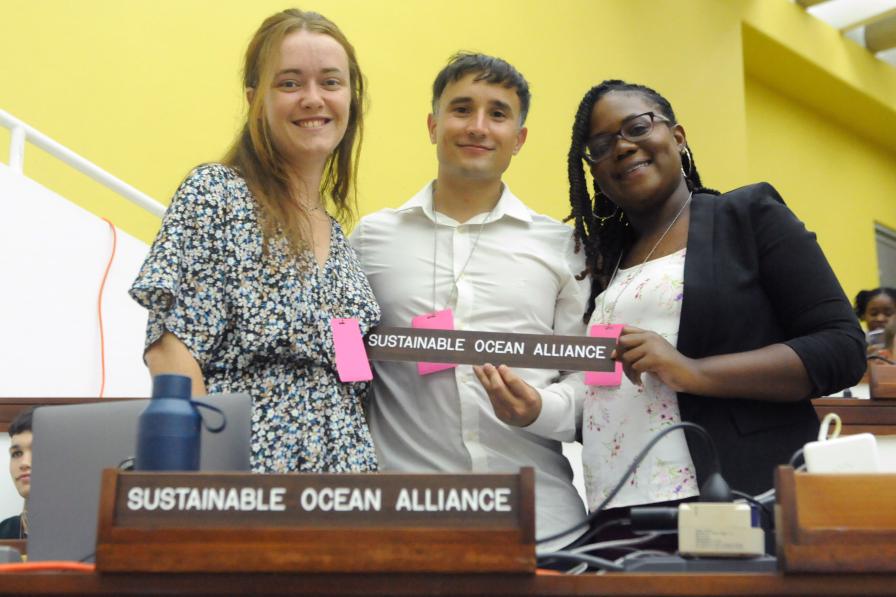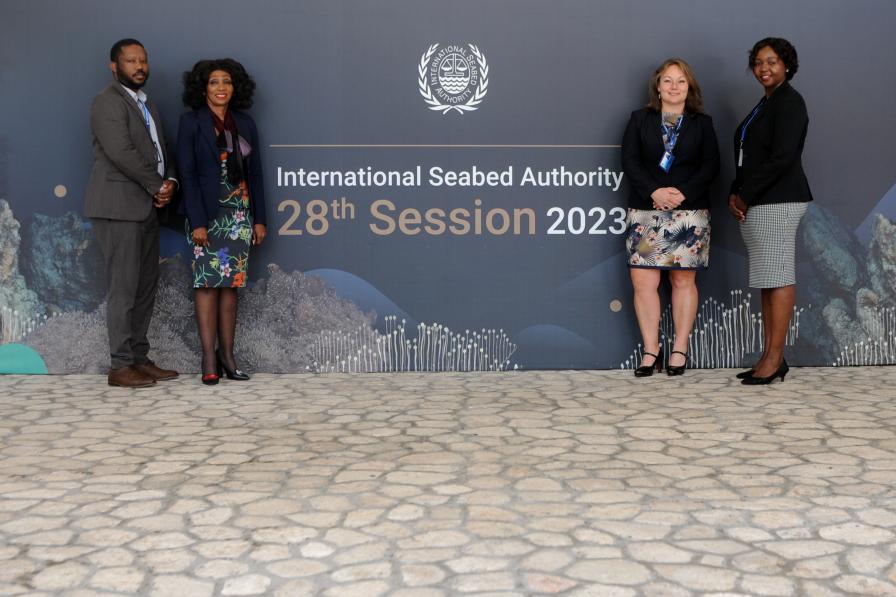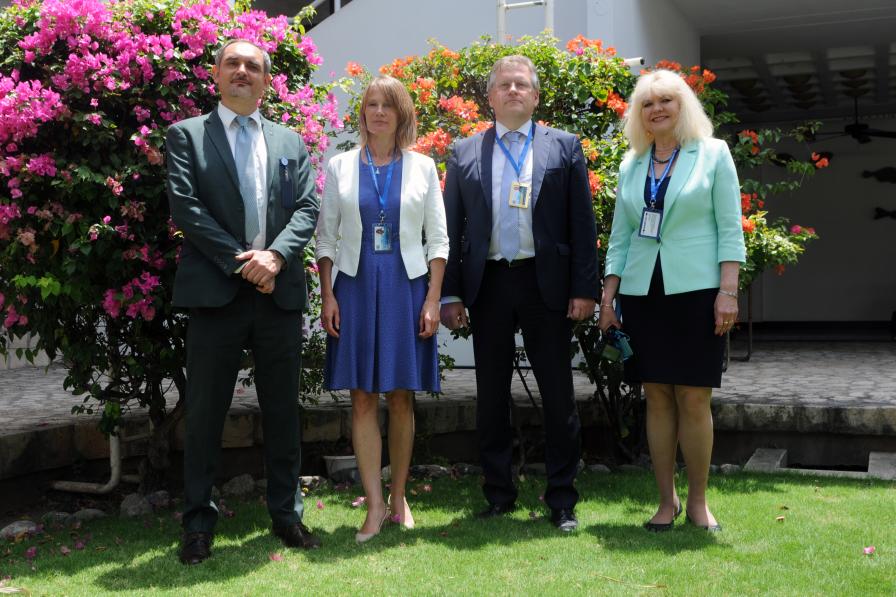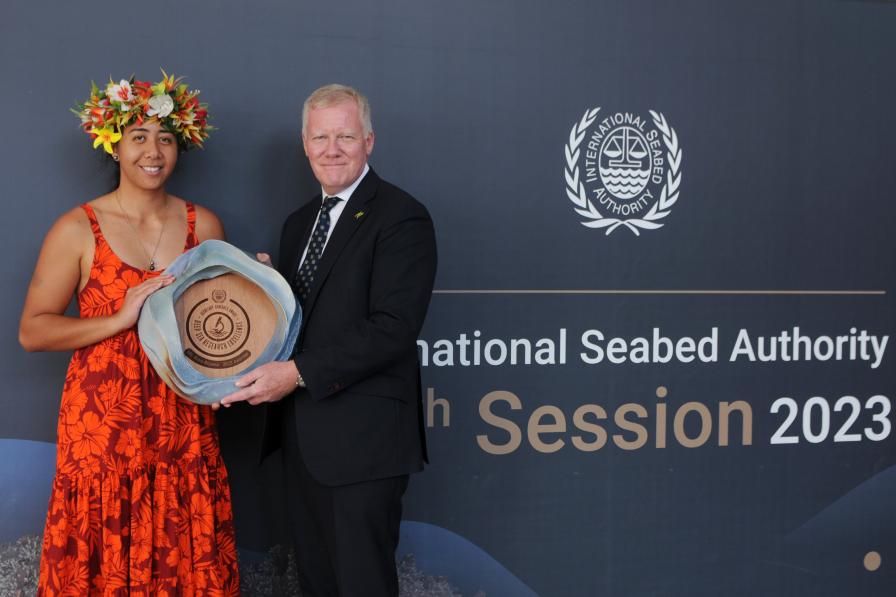The Assembly of the International Seabed Authority (ISA), the Authority’s supreme organ, began its annual meeting with a hiccup as delegates struggled to reach consensus on the meeting’s agenda. Two proposals for supplementary agenda items generated intense and lengthy discussions, which were addressed at a Bureau meeting and informal discussions throughout the day, without reaching consensus.
In the morning, Raymond Mohammed (Fiji) on behalf of Satyendra Prasad, Assembly President for the 27th session, opened the 28th Assembly meeting. Secretary-General Michael Lodge welcomed delegates, and acknowledged progress made by the Council during the last two weeks and its commitment to continue advancing work on the exploitation regulations.
Ghana, for the African Group, nominated Fanday Turay, Permanent Representative of Sierra Leone to the UN, as Assembly President for the 28th session. Belgium, Singapore, and Trinidad and Tobago were nominated as Vice-Presidents. All nominees were elected by acclamation.
President Turay introduced the provisional agenda, drawing attention to two supplementary agenda items on:
- the establishment of a general policy by the Assembly related to the conservation of the marine environment, including in consideration of the effects of the two-year rule, proposed by Chile, Costa Rica, France, Palau, and Vanuatu; and
- terms of reference for the periodic review of the international regime of the Area pursuant to Article 154 (periodic review) of the UN Convention on the Law of the Sea (UNCLOS), put forth by Germany.
China, Nauru, and Mexico opposed the inclusion of additional agenda items, noting that any Assembly decision on a matter where the Council has competence can only be taken following a Council recommendation.
Chile, Germany, Switzerland, Brazil, Ireland, Spain, Belgium, France, Vanuatu, Portugal, Costa Rica, and Monaco stressed that the proposals for the supplementary agenda items were made according to the rules of procedure and should be discussed. They underscored the need to adopt the agenda as a whole, according to rule 18 (adoption of the agenda) of the rules of procedure. Vanuatu underscored that the direction that the ISA will take has “enormous implications for present and future generations” and should be discussed by the Assembly. Germany stressed that deciding not to discuss these issues will send “an unfortunate signal on the willingness of the Assembly to fulfil its obligations under international law.”
President Turay noted divergent views among delegates and invited Bureau members to further discuss the issue. Following Bureau discussions and informal consultations, consensus was still elusive. Deliberations on the adoption of the agenda and the inclusion of the proposed supplementary items will continue on Tuesday. President Turay suggested, and delegates agreed, to continue work on the basis of the provisional agenda.
Assembly members:
- appointed the Credentials Committee;
- elected Xing Chaohong to fill the vacancy in the Finance Committee, following a nomination by China;
- approved requests for observer status by the China Biodiversity Conservation and Green Development Foundation, the Te Ipukarea Society, the Norwegian Forum for Marine Mineral, Arayara International Institute, the Minderoo Foundation, the Sustainable Ocean Alliance, the International Council on Mining and Metals, and the Environmental Justice Foundation; and
- approved the proposed amendments to the statute of the International Civil Service Commission.
Council President Juan José González Mijares (Mexico) presented on the work of the Council during its 28th session. Delegates stressed, among other things:
- the need to develop a compliance strategy for ISA;
- the Council’s progress and remaining gaps on the development of the draft exploitation regulations;
- progress on the operationalization of the Enterprise; and
- the need to continue engaging in good faith negotiations for present and future generations.
In the afternoon, Rima Browne (Cook Islands) received the 2023 Secretary-General’s Award for Excellence in Deep Sea Research. She stressed that her work on the seabed geomorphology map will contribute to informed decision making on the use of the ocean’s valuable resources.
Finance Committee member Kajal Bhat (India), on behalf of Chair Khurshed Alam (Bangladesh), presented the report and recommendations of the Finance Committee. She drew attention to the recommendation to approve the supplementary budget to cover costs associated with the establishment of the position of interim director general for the Enterprise.
Assembly members congratulated the Finance Committee for its work. Chile, Costa Rica, Brazil, and Tonga stressed the need to analyze additional mechanisms for distribution of benefits, including direct distribution of revenues from mining to states. Canada expressed concern over arrears and late payments, and supported work on the establishment of a common heritage fund.
The Assembly adopted the decision on the supplementary budget.
All ENB photos are free to use with attribution. For the 2nd Part of the 28th Annual Session of the ISA, please use: Photo by IISD/ENB | Diego Noguera
To receive free coverage of global environmental events delivered to your inbox, subscribe to the ENB Update newsletter.
